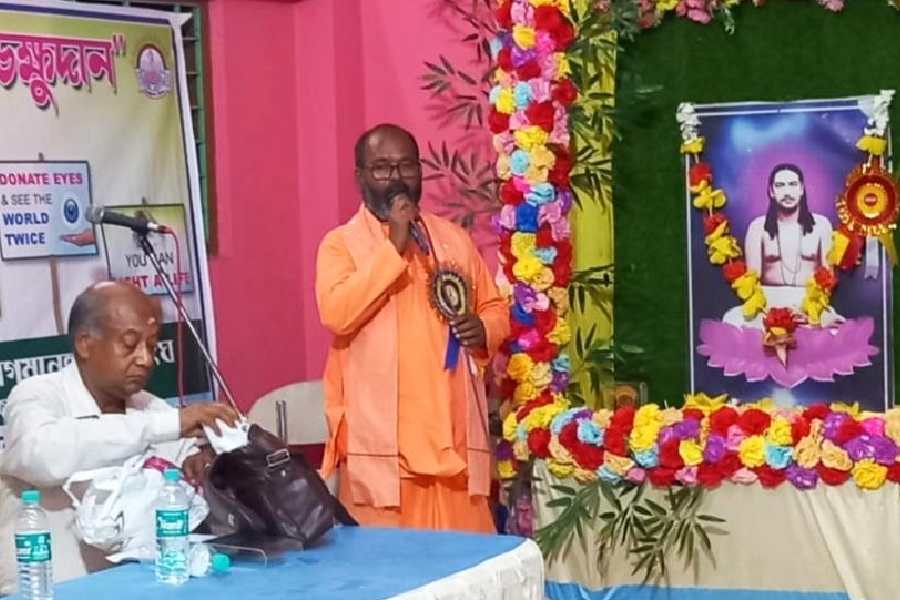Nigamananda Mission, a religious organisation, has launched an ambitious campaign to eradicate corneal blindness in India.
In collaboration with Santipur Marami, a Nadia-based social organisation that runs a cornea collection centre, the mission has initiated a state-wide awareness drive across Bengal encouraging individuals to pledge their eyes for donation.
Rooted in the teachings of Swami Nigamananda Paramahansa (1880-1935), a revered yogi and spiritual leader of the Shakta tradition, the Nigamananda Mission has enlisted its sect leaders to educate the public on the critical importance of eye donation. This effort is particularly significant in India, where a substantial portion of the visually impaired population of the world resides.
Religious leaders of the Nigamananda Mission will address common misconceptions about eye donation through sermons and public outreach, aiming to shift societal attitudes.
The initiative, launched on August 25 in Chakdaha, Nadia, has garnered praise from educators and science advocates who see it as a vital step in bridging the gap between religious beliefs and scientific awareness.
India is home to approximately 12.5 million visually impaired individuals, representing about 20 per cent of the global total. With corneal transplantation being the only effective treatment for visual rehabilitation in many cases, the availability of donated eyes is crucial. Eyes can be donated within 6-8 hours after death, and the act of donation is open to everyone, regardless of age, sex, blood group, or religion. However, a donor pledge and family awareness are essential for the process to occur.
“It is quite rare to see a religious organisation promoting an issue so deeply rooted in scientific need,” remarked Nirupam Biswas, former Medical Superintendent of the College of Medicine-Kalyani and JNM Hospital.
On the inaugural day of the campaign, 20 individuals pledged to donate their eyes. The event coincided with the National Eye Donation Fortnight, an annual awareness initiative by the Ministry of Health and Family Welfare, observed from August 25 to September 8. Established in 1985, this campaign seeks to educate the public on the importance of eye donation, aiming to address the severe shortage of corneas and dismantle cultural barriers.
“Alongside fostering spiritual development, our mission is committed to spreading the right kind of education with a focus on character building. Promoting awareness about eye donation is an integral part of this broader mission,” said Pranabesh Chaitanya Brahmachari, working secretary of the Nigamananda Mission.
“Many people are hesitant to donate their organs after death due to social taboos. We frame it as a final gift that one can offer after having lived a life of giving,” he added.
The global shortage of corneas is stark. According to a recent report published in the National Medical Journal of India, approximately 2.7 lakh donor eyes are needed annually for one lakh corneal transplants. However, only one cornea is available for
every 70 required. In India, despite 8 million deaths annually, only about 15,000 corneas are donated, highlighting a critical shortage.
Science experts emphasize that this significant gap in the demand and supply of donor eyes poses a major challenge to public health specialists and the broader healthcare system in India.
“Various organisations nationwide, including government bodies, have been working tirelessly to encourage people to pledge their eyes for donation. While progress has been made, there is still a long way to go to reduce the gap between need and availability,” said Tapan Majumder, working president of Santipur Marami, who has been involved in cornea collection since 2022.
In this context, the involvement of a religious organisation like Nigamananda Mission is an exception and particularly noteworthy, Majumder added.










